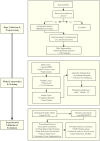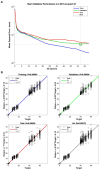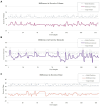Individual cardiorespiratory fitness exercise prescription for older adults based on a back-propagation neural network
- PMID: 40371295
- PMCID: PMC12074945
- DOI: 10.3389/fpubh.2025.1546712
Individual cardiorespiratory fitness exercise prescription for older adults based on a back-propagation neural network
Abstract
Introduction: To explore and develop a backpropagation neural network-based model for predicting and generating exercise prescriptions for improving cardiorespiratory fitness in older adults.
Methods: The model is based on data from 68 screened studies. In addition, the model was validated with 64 older adults aged 60-79 years. The root mean square error (RMSE), mean absolute error (MAE) and coefficient of determination (R2) were used to evaluate the fitting and prediction effects of the model, and the hit rate was used to evaluate the prediction accuracy of the model.
Results: The results showed that (1) The mean error ratios for predicting exercise intensity, time and period were 7% ± 12, -5% ± 9% and - 7% ± 14%, respectively, indicating that the estimates were in good agreement with the expected results. (2) Of the 61 subjects who completed the assigned program, cardiorespiratory fitness improved significantly compared with pre-exercise. Improvements ranged from 9.2-10% and 8.9-15.8% for female and male subjects. (3) In addition, 71 and 94% of subjects (43/61) showed cardiorespiratory improvement within plus or minus one standard deviation and plus or minus 1.96 times standard deviation.
Discussion: A neural network-based model for exercise prescription for cardiorespiratory fitness improvement in older adults is feasible and effective.
Keywords: BP neural network; cardiorespiratory fitness; exercise prescription; experimental validation; older adults.
Copyright © 2025 Xiao, Xu, Zhang and Ding.
Conflict of interest statement
The authors declare that the research was conducted in the absence of any commercial or financial relationships that could be construed as a potential conflict of interest.
Figures











References
-
- Raghuveer G, Hartz J, Lubans DR, Takken T, Wiltz JL, Mietus-Snyder M, et al. . Cardiorespiratory fitness in youth: an important marker of health: a scientific statement from the American Heart Association. Circulation. (2020) 142:e101–18. doi: 10.1161/CIR.0000000000000866, PMID: - DOI - PMC - PubMed
MeSH terms
LinkOut - more resources
Full Text Sources
Medical

